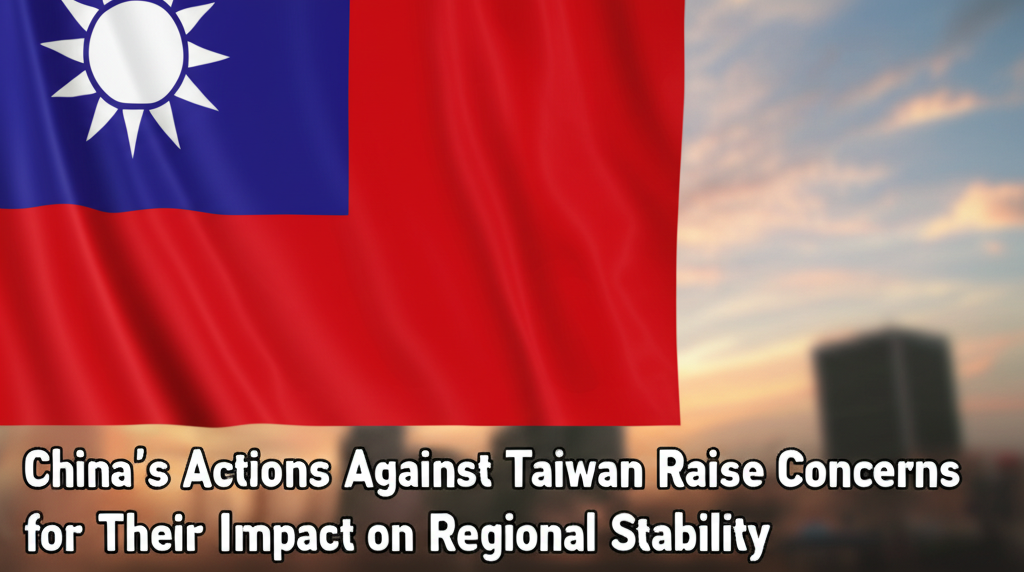China's Actions Against Taiwan Raise Concerns for Freedom of Speech
US Expresses Concerns Over China's Intimidation Tactics and Their Impact on Regional Stability

Recent statements from the U.S. Department of State highlight growing concerns regarding China's approach to Taiwan. The U.S. government views China's actions as a threat to freedom of speech and a destabilizing force in the Indo-Pacific region.
The U.S. has indicated that China's intimidation campaign extends beyond Taiwan, targeting its supporters globally, including those in the United States. This campaign is seen as undermining established norms and the cross-strait status quo.
The State Department expressed particular concern over new judicial guidelines issued by China, which are based on its Anti-Secession Law and Criminal Law. These guidelines are described as "draconian" as they direct Chinese courts and law enforcement to prosecute individuals deemed to be "Taiwan independence diehards," with penalties potentially including the death penalty.
In response to these developments, the United States reaffirms its commitment to deterring aggressive actions and resisting any form of coercion that could jeopardize the security, social or economic system of Taiwan.
The case of a Taiwan-based publisher, recently put on trial in China, has brought these issues to the forefront. The publisher, also known by a pen name, was detained in Shanghai on suspicion of engaging in activities that jeopardize national security. He moved to Taiwan and founded a publishing house there, which may have contributed to the charges against him.
The publisher was tried for the crime of inciting to split the country, with a verdict handed down by a Shanghai court. However, the details about the sentencing were not disclosed.
